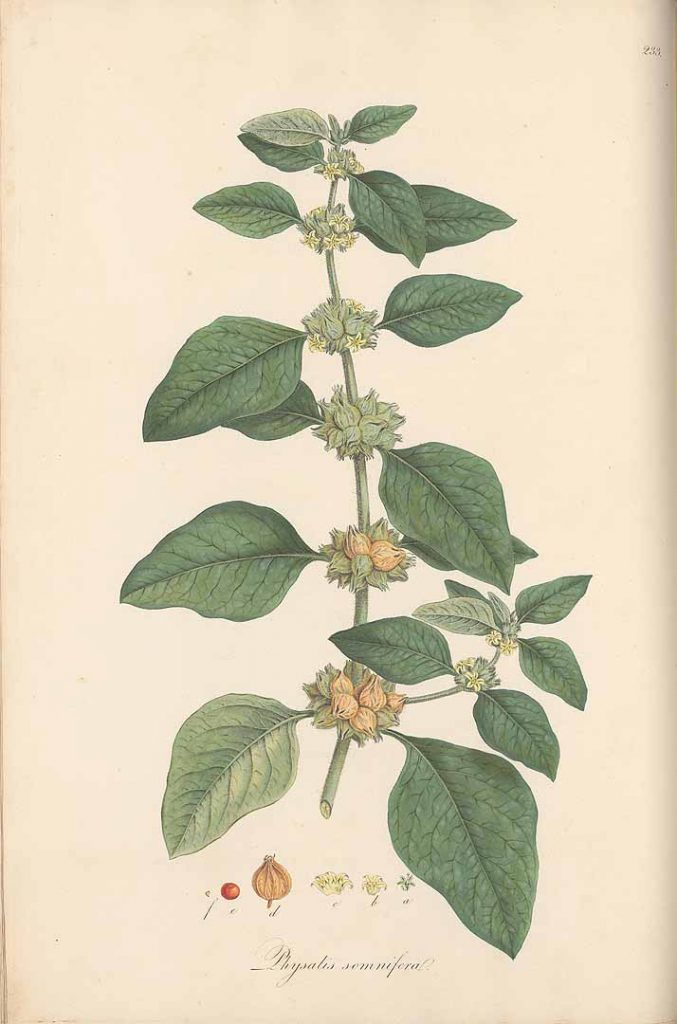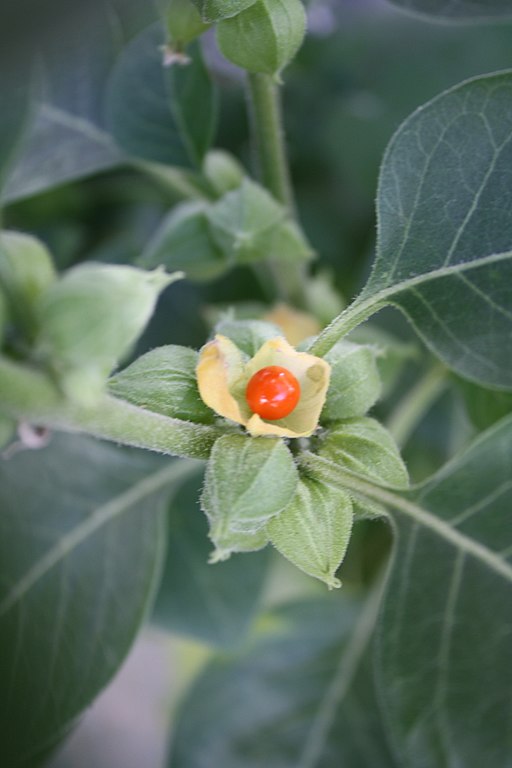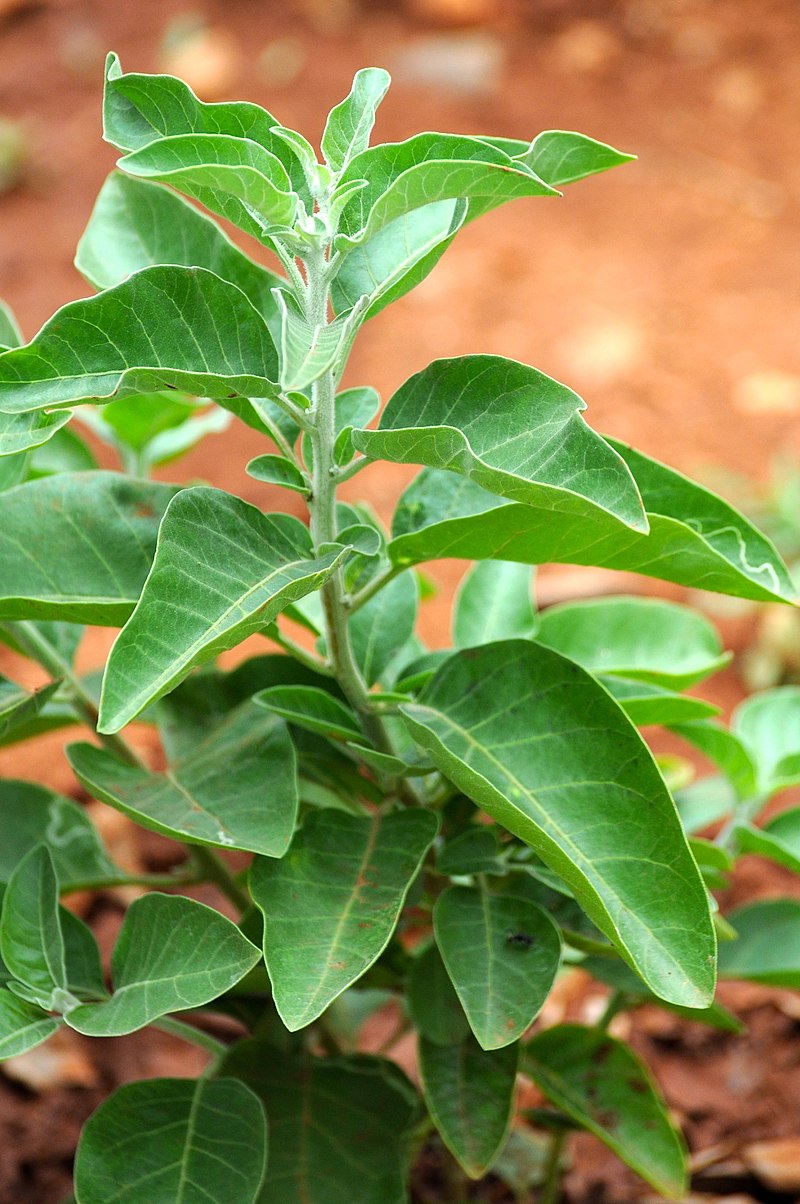The benefits of Ashwagandha for insomnia (sleep disorder) is well known, but what are the other health benefits of Ashwagandha Ayurvedic medicine? When to take Ashwagandha – before or after meal?
Here are some of the most well-proven Ashwagandha benefits for men and women.
Ashwagandha
Ashwagandha is one of the most important herbs in Ayurveda and has been used for over 3,000 years. It is one of the powerful Ayurvedic herbs and as per Ayurveda, Ashwagandha is an adaptogen (manage stress and mental disorders). It is believed that a person who consumes Ashwagandha on a daily basis will gain horse-like strength. It is also used as an aphrodisiac (enhances sexual health).

Ashwagandha: Ayurvedic Medhyarasayana
Ashwagandha (Withania Somnifera) is commonly known as “Indian Winter Cherry” or “Indian Ginseng”. It is a small shrub which bears yellow flowers. The root smells like horse (ashwa in Sanskrit) and it is why it is called Ashwagandha. Another possible reason for its name is that consuming it gives the power of a horse. The extracts from Ashwagandha’s root or leaves are used in Ayurveda to treat a variety of ailments.
Ashwagandha is an Ayurvedic Rasayana (belongs to a sub-group of Medhya Rasayanas in Ayurveda). The word Medhya means mind (relates to mental state or power) and the word Rasayana is chemical or compound. Ashwagandha in its form of Medhya Rasayana, is used to enhance memory and stamina.
Ashwagandha: Health Benefits
It inhibits cortisol (the stress hormone) and hence it is highly effective for people battling stress and all kinds of mental ailments. Ashwagandha is very effective in treating insomnia as it reduces stress and calms the overall nervous system. For those looking to gain weight, Ashwagandha can help increase mass and strength of the muscle. Apart from its anti-inflammatory properties, Ashwagandha reduces cholesterol and helps improve heart condition.
1. Ashwagandha include alkaloids, steroidal lactones, saponins, anti-stress agents and immunomodulatory agents. It enhances the cellular function of the brain and improves the function of the nervous system and reproductive system.
2. It is a powerful adaptogen and it is very helpful to relieve stress.
3. Ashwagandha improves the body’s immunity system as it contains antioxidants which protect the body against cellular damage.
4. The leaves of Ashwagandha are highly recommended in fever, body pain and swellings.
5. The flowers of Ashwagandha have various medicinal properties similar to diuretic, depurative, astringent and aphrodisiac.
6. The seeds of Ashwagandha are anthelmintic and very effective to remove white spots of cornea.
7. Ashwagandharishta prepared from the seeds of Ashwagandha are used to cure hysteria, anxiety and memory loss.
8. Ashwagandha seeds are also a natural stamina booster. It increases the sperm count. Several studies have shown that Ashwagandha has significantly revitalized the testosterone count even in infertile men.
9. The paste of Ashwagandha roots are very effective to reduce joint-inflammation and chronic pain (all kinds of painful swellings).
10. The root is a powerful cure for scorpion-sting and snake bite.
11. Ashwagandha is a nervous tonic and induces immunity and longevity.
12. It is used to cure the brain’s diseases such as Parkinson’s, Huntington’s, Alzheimer’s, and other neurodegenerative diseases.
13. It has an amazing anti-inflammatory effect (Withaferin). It also shows antibacterial and immunomodulating properties.
14. Ashwagandha has some of the most striking Anti-arthritic effects. As an analgesic it soothes the nervous system and lessens pain.
15. It is also used in vitiated conditions of vata.
When to take Ashwagandha?
Traditionally, Ashwagandha is used as a powder mixed with honey, ghee or warm milk. 1 teaspoon of powdered Ashwagandha is adequate (can vary from person to person). Note that Ashwagandha can be taken on an empty stomach, but if someone experiences discomfort (taking it on an empty stomach), then he/she should consider taking it after a small meal.
The Ayurvedic use of Ashwagandha can be traced back to 6000 BC (Charak Samhita) and has been in medicinal use since then.


